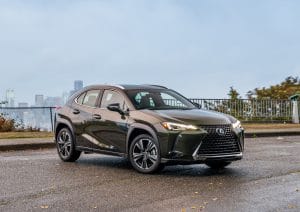
Depending on how you count, BMW appears to have to emerged as the best-selling luxury brand in the United States, pushing past archrival Mercedes-Benz, which fell two spots to third place.
In the fourth quarter of 2020, BMW brand sales totaled 98,750 vehicles, only a 2% decrease from the 100,797 vehicles sold in the fourth quarter of 2019, for the full year 2020, BMW brand sales dropped 17.5% on total sales of 278,732 compared to the 338,003 vehicles sold in 2019.
Lexus sold a total of 275,041 passenger cars and utility vehicles moved into second place, nosing out Mercedes-Benz. For the full year, Lexus sales dropped 8.3% in 2020.
(BMW ‘significantly increasing” electric vehicle production.)
Mercedes-Benz USA reported sales of 78,078 vehicles during the fourth quarter. On a full-year basis, MBUSA recorded sales of 274,916 Mercedes-Benz passenger vehicles as fell behind BMW. In addition, MBUSA also sold 50,999 Mercedes-Benz vans, which include some luxury vehicles and commercial vehicles, bringing MBUSA’s total sales to 325,915 units, a decrease of 8.9% versus 2019.

“There is no doubt that 2020 was a challenging year for automotive sales, but we have found that these challenges were due more to the circumstances, rather than consumer demand,” said Bernhard Kuhnt, president and CEO, BMW of North America.
“We owe our dealers and regional teams a lot of credit for their flexibility and dedication while adapting to the situation. With their support we felt very confident throughout the second half of the year as consumer deliveries grew quickly — even exceeding own expectations.”
Despite the challenges posed by the ongoing global pandemic, BMW brand sales in the U.S. improved significantly in the second half of the year – including several outstanding months – as the sales network reopened, production restarted, and inventory levels improved.
The last four months of the year were particularly strong, owing much to increased production at Plant Spartanburg, which helped meet customer demand for top-selling models such as the BMW X3, X5 and X7 Sports Activity Vehicles.
(Mercedes launching six all-electric models by 2022 — with two to be built in U.S.)
BMW and Mercedes have been trading the top position for the past several years, but Mercedes’ drop to third position. However, the brand expects to be back on top in short order with an influx of product.

Dimitris Psillakis, president and CEO of MBUSA said, “We are excited to introduce nine new models in the months ahead, including the all-new S-Class and the EQS electric, and continue to leverage the natural market gravitation of SUVs.”
In addition, sales of Mercedes-AMG high-performance models increased 29.1% to 11,128 units, which pushed the sub-brand to its best-year ever as sales increased 1.5% to 34,079 vehicles.
Audi, the third of the popular German luxury brands, reported its sales dropped 4.8% in the fourth quarter and its sales for the full year declined 17% to 186,620.
Volvo Car USA reported 14,244 cars sold in December, up 15.2% compared with 2019 and its seventh consecutive month of year-over-year growth. The company finished 2020 up 1.8% from last year with a total of 110,129 cars sold. The monthly result continued a strong upward trend, which saw the brand up 40% in December 2019 over 2018.
“Given the challenges our industry faced this year, I am humbled by what our employees and retail partners were able to achieve together,” said Anders Gustafsson, senior vice president, Volvo Car Americas and president and CEO, Volvo Car USA.
(End of year auto sales pick up due to pickups.)
Sales by Cadillac, General Motors’ top brand, saw its sales drop 17.1% in 2020 to 129,495. GM executives are hoping the new Escalade will boost Cadillac’s fortunes in 2021. Meanwhile, Lincoln, Ford Motor Co.’s luxury brand, reported a 6.1% decline in sales to 105,410 units. Much like it’s Detroit-based competitor, it’s counting on its recently rounded out line-up of utes to grow sales in 2021.







